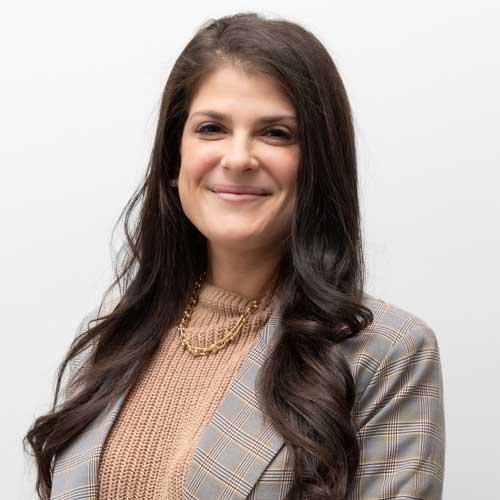The opioid crisis has profoundly impacted Connecticut and has a higher-than-average overall rate of drug-induced mortality. This makes an intensive outpatient program, or IOP, in Greenwich all the more critical.
According to the Connecticut State Department of Health, the number of mortalities caused by drug abuse was 39.1 per 100,000 in 2020. The national rate in the same year was 28.3. [1] If you’re struggling with a substance use disorder, an intensive outpatient program (IOP) in Greenwich could save your life.
Outpatient treatment is often used as a step-down program for patients who have completed more comprehensive levels of care, such as a day treatment program. Knowing what to expect from the program will help you meet your recovery goals if you’re considering an IOP.
What Is an IOP in Greenwich?
People who need addiction treatment, including those with a co-occurring mental illness, have several options for care. An IOP is a flexible recovery program designed to support individuals as they learn how to navigate life without the use of drugs or alcohol. An intensive outpatient program is often recommended for those who are transitioning from another program.
As the term suggests, IOPs provide intensive care that allows the patient to live independently at home. Furthermore, an outpatient program is considered “intensive” if participants receive clinical therapy for at least nine hours per week.
IOP supports patients as they meet other commitments such as work, school, and family life. IOPs provide a continuum of care. Patients also often work with the same therapists and staff members they came to know in their previous program. Some of the recommended therapies include:
- Behavior therapy
- Individual therapy
- Dual-diagnosis treatment
- Life skills training
Continued therapy aims to help patients build healthy new coping strategies. It is also a safety net that provides support and professional care as new people in recovery learn to apply the new skills they have learned.
Peer support is also an essential component of an intensive outpatient program. Patients can share their challenges and successes in recovery with others who understand what they are going through. Learning how to support and be supported by a sober community may help maintain long-term recovery.
A Typical Day in an IOP
Each person’s treatment plan varies, but you can expect to attend treatment at an IOP for up to three hours per day, five days a week for around six weeks. While at the clinic, patients participate in a schedule of therapies designed to help them cope with any behavioral or emotional issues they are facing.
IOPs offer a great deal of flexibility. Once treatment hours have been completed for the day, participants are free to return home, work, or go to school. Additionally, having the support of an IOP as you learn how to navigate the complexities of daily living without substances can make all the difference.
Are IOPs Effective?
One study on outpatient satisfaction concluded that individuals are most successful in treatment programs that meet their needs. [2] Moreover, programs that provide personalized treatment plans that keep patients motivated are thought to be more effective.
An IOP may be part of an individual’s aftercare program. Ultimately, aftercare refers to the continued treatment a person receives after completing the first stage of treatment. The initial abstinence from drug or alcohol use is difficult, but it’s only the first step in recovery. Aftercare provides support and resources to help people continue their wellness path.
Ongoing behavior therapy and peer support are the foundation of an IOP. Life skills help train patients to find a job, build healthy relationships, and manage day-to-day responsibilities.
Finally, IOPs also offer some level of accountability. Patients must attend scheduled therapy sessions and may be monitored with drug tests.
Connecticut Center for Recovery Offers IOP in Greenwich, CT
If you or someone you love needs help overcoming drug addiction, the Connecticut Center for Recovery is here to help. We offer several levels of care, including an intensive outpatient program for graduates of our day program and others who need ongoing treatment support. Contact the Connecticut Center for Recovery to learn more about our IOP and other programs.
Sources:
[1] https://portal.ct.gov/DPH/Health-Education-Management–Surveillance/The-Office-of-Injury-Prevention/Opioid-and-Drug-Overdose-Statistics
[2] https://trepo.tuni.fi/bitstream/handle/10024/122301/Factors_predicting_satisfaction_2020.pdf?sequence=2&isAllowed=y

Alexis earned both a B.S. in Psychology and a B.S. in Family and Child Sciences from Florida State University and an M.A. in Marriage and Family Therapy from the University of San Diego. She holds licenses in Marriage and Family Therapy in Florida, Connecticut, and Massachusetts and is also a member of the American Association for Marriage and Family Therapy (AAMFT).
Alexis works with families, couples, children, and groups and also has a sub-specialty in addiction and recovery. She utilizes an integrated, systemic approach to counseling; empowering people to define what is not working for them in their lives and to discover the possibilities for making life work. In doing this, clients are guided towards identifying their strengths, accessing their resources, tapping into their potential for success, and taking action toward achieving their desired goals.
Alexis also has extensive experience in the administration of behavioral health organizations. She has developed, built, and supervised several facilities encompassing all levels of care while leading them through state licensing and The Joint Commission accreditation process.

